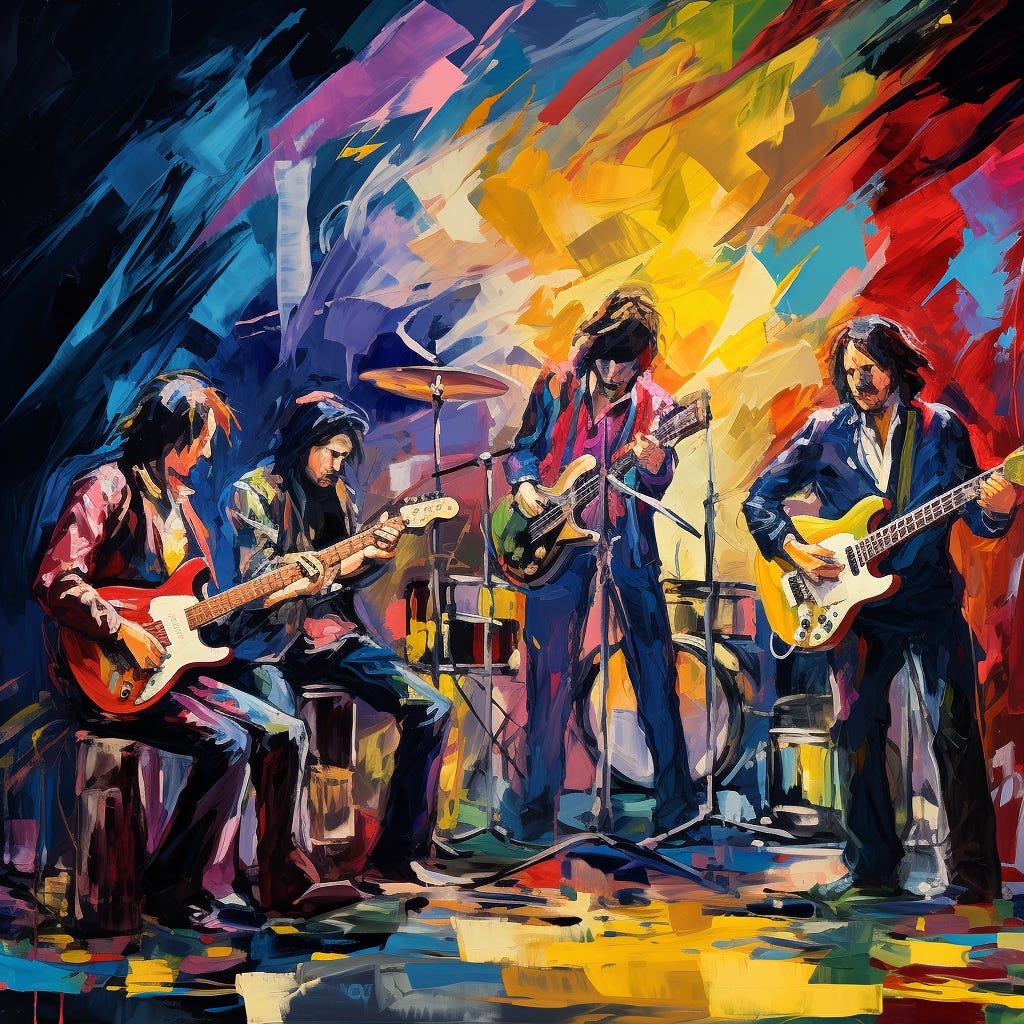The Benefits of Music
Music has the power to touch your heart and enhance your life. Whether it's the soothing melodies of a piano, the groovy rhythms of reggae, or the electrifying beats of classic rock, music can amplify our feelings and invoke a spectrum of positive emotions. Let the music reconnect you with positive vibrations whenever you feel upset.
This article has the potential to explain how music can enhance psychological well-being.
Music and Emotion
I began contemplating the power of music during my second year of university. I read a book about "emotions induced by music," marking this magical journey's starting point. I discovered that music:
It is one of the best catalysts for emotional well-being.
It can intensify your emotions and bring a smile to your face, even when you are sad.
It can release hormones like dopamine and oxytocin, providing the power and motivation to tackle challenges.
It can also function as a form of therapy, effectively reducing negative emotions such as anxiety and depression.
So, on a bad day or when you want to relax, find a comfortable spot and listen to music.
Cultural Music
Music varies significantly based on culture.
Numerous musical styles are often determined by the instruments that produce the sounds.
For instance, Africans have the Balafon, an exciting tool reminiscent of a xylophone, and the Djembe, which makes rhythmic drumming.
The Japanese have the remarkable koto, a guitar-like instrument unique to their country, creating a captivating sound.
In Europe, particularly in the Balkans, wooden flutes and accordions resonate with folk music.
They tailor these instruments to their respective cultural traditions, and the fascinating sounds they produce become deeply intertwined with each culture's history and practices.
For instance, the Japanese use the handpan to induce trance-like or meditative states in their cultural rituals.
With these instruments, people create music for various cultural and social purposes, and some cultures have specific rituals aimed at inducing transcendent mental and spiritual states. Thus, music can convey personal meaning and connect individuals to their cultural rituals and deities.
Music can speak
Music has the potential to communicate with us through the power of vibrational sound.
I vividly remember attending a psychedelic rock concert featuring a Greek band.
These musicians opened the show with sensational instruments, playing in an unconventional style I had never witnessed before. Even the stage's vibrant colors were incredibly captivating.
As the band continued to play, I experienced an exhilarating sensation that enveloped my body with waves of positive emotion, an experience I had never felt at a concert before. The audience was equally engaged and passionate about the music, forging a powerful connection.
At that moment, I realized that music can communicate with us. Through the instruments' vibrations and the performance's energy, it felt like the music touched my soul, evoking a trance-like or meditative state. Music has the unique power to transform emotions and communicate in ways that language cannot replicate.
This concert showcased the remarkable ability of music to establish profound connections with people. It was a genuine work of art that conjured memories and emotions.
Music and Creativity
These two aspects are deeply intertwined on a psychological level. Music serves as a catalyst for evoking emotions, which in turn fuel creativity.
Another perspective is that music not only triggers emotions but also enhances creativity.
It exerts a significant impact on the creative process.
Many artists and innovators employ music to improve their imagination and creativity. For those seeking great content or innovative ideas, try playing some music.
Even when stressed or lacking inspiration, playing music is an excellent way to rekindle your creativity, helping you discover new ideas and fresh viewpoints.
Conclusion
It is remarkable how music can alter our emotional state and our perspective.
Music is a powerful catalyst for emotional well-being, intensifying our feelings and eliciting positive emotions.
Across cultures, various instruments and sounds from diverse traditions shape our world. Furthermore, music can communicate with us on an intrinsic level, speaking in a manner that words cannot replicate.
Ultimately, music positively influences creativity by tapping into the emotional dimension.





